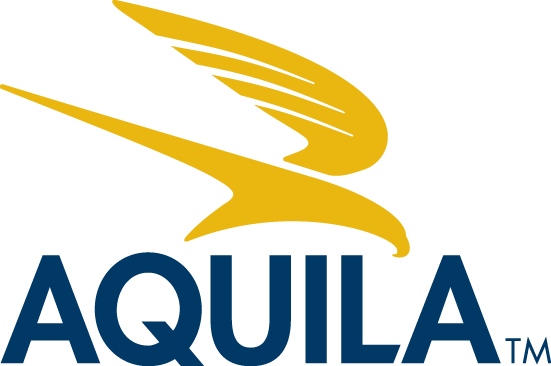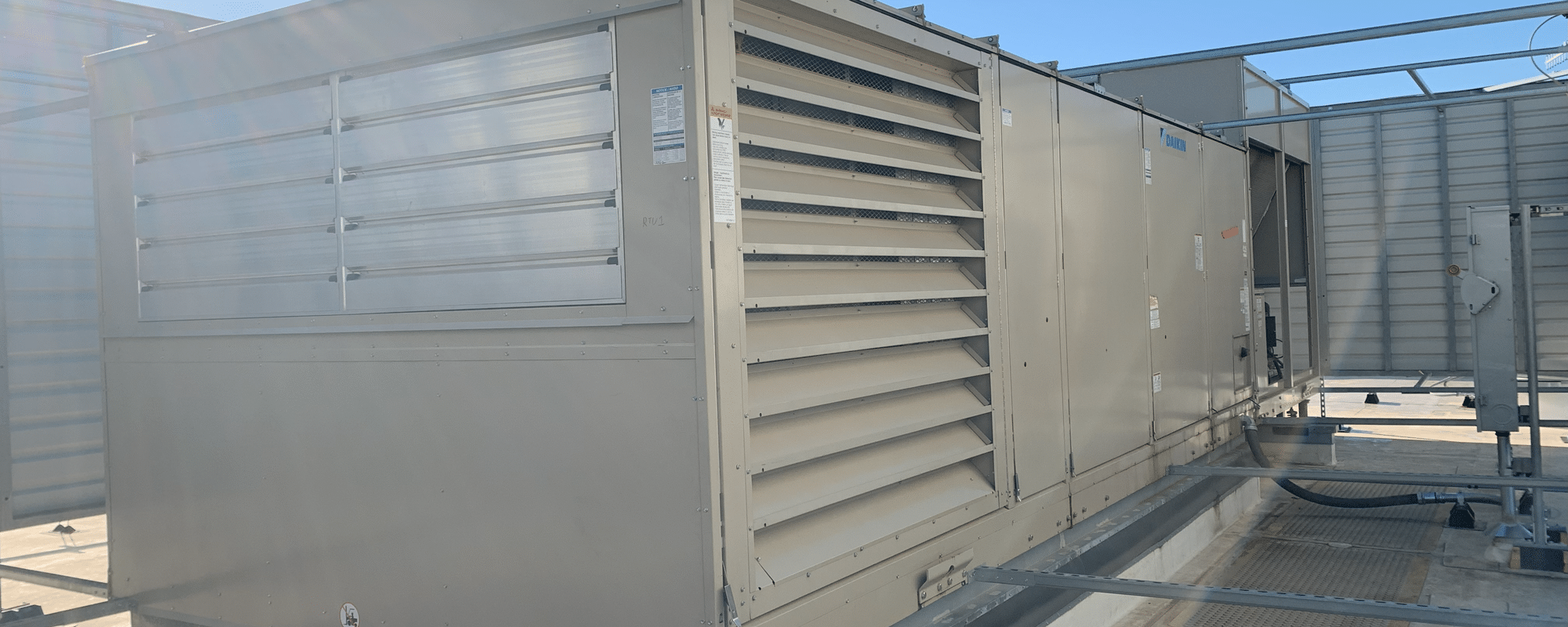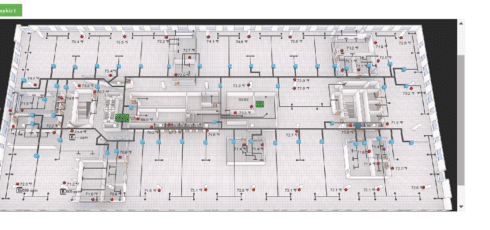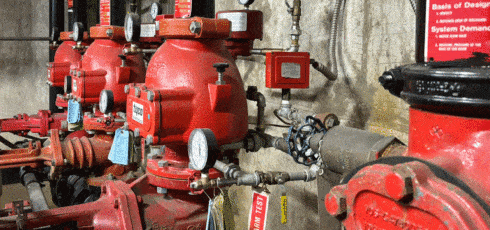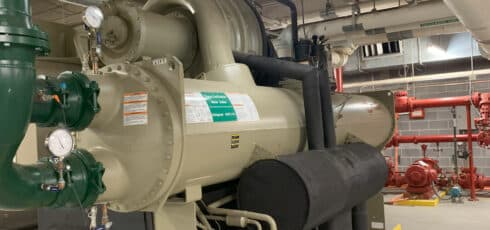Having a regular maintenance plan is the best way to maximize the lifespan of your commercial heating, ventilation, and air conditioning (HVAC) system, just as routine oil changes and tune-ups maximize the lifespan of your vehicles. Implementing quarterly maintenance and checks by knowledgeable technicians can prevent unexpected breakdowns and extend the life of your HVAC system for years, saving you money.
Read Next: What Are the Different Types of HVAC Systems for Commercial Buildings?
Think of your HVAC equipment like you would your company fleet. You wouldn’t run delivery vans or trucks 100,000 miles without oil changes, fluid checks, belt replacements, and other upkeep. The same philosophy applies to your HVAC investment. Don’t wait for failure – prevent it through proper maintenance.
The Importance of HVAC Maintenance Contracts
Putting preventative maintenance contracts in place with qualified vendors is key. This ensures your system gets looked at regularly, typically quarterly. With scheduled maintenance, issues can be caught early before causing system failure. Breakdowns lead to costly repairs and replacements that can be avoided through routine maintenance.
Read Next: Deferred Maintenance in Commercial Property Management: The Snowball Effect
Maintenance contracts also guarantee priority service response time. If something does go wrong between scheduled visits, you want your vendor to have you at the top of the list for fast repairs. Slow service turnaround can mean days without proper heating or cooling in your commercial space.
Typical Quarterly HVAC Maintenance Procedures
A standard quarterly maintenance inspection on a commercial HVAC system will vary depending on the property type, HVAC system, and property size. Typically, it will include the following tasks.
Inspecting Refrigerant Levels and Ensuring Proper Refrigerant Charge
The technician will hook up gauges to the HVAC system to measure the pressure and temperature of the refrigerant. Based on the readings, they can determine if the refrigerant level is correct. Undercharged systems will have low-pressure readings. Overcharged systems will have high pressures. Both under and overcharged pressures impair cooling capacity and efficiency.
If the refrigerant level needs adjusting, the technician will remove or add refrigerant as needed to bring it to the proper level recommended by the equipment manufacturer.
Checking for Leaks in Refrigerant Lines
Technicians will visually inspect all refrigerant piping and components for signs of oil residue which can indicate a leak. They will also test connections and joints with an electronic leak detector to pinpoint any leaks.
Even very small leaks need to be repaired to prevent gradual refrigerant loss over time. Lost refrigerant will severely reduce cooling capacity and will be costly.
Cleaning Condenser and Evaporator Coils
Condenser and evaporator coils can accumulate dirt, dust, and other debris over time which blocks airflow. Technicians will thoroughly clean the coils by brushing or pressure washing. Chemical coil cleaners may also be used to break down stubborn buildup. These cleanings are typically done in the spring to prepare for higher summer temperatures.
Keeping coils free of debris maintains proper airflow for heat transfer and prevents the system from working harder to compensate.
Read Next: Cost to Hire a Commercial Property Management Company in Austin, TX (Fees/Rates)
Checking the Condition of Filters
The technician will inspect the HVAC filter and recommend replacement if it appears clogged with dust and particles. A very dirty filter can cause reduced airflow to the HVAC system. This strains the blower motor and decreases efficiency.
The filter type and replacement frequency depend on factors like air quality and daily runtime hours. Quarterly or monthly filter checks are typical.
Inspecting Belts and Pulleys
Technicians will check the condition of any belts used in the HVAC system like blower belts. Cracked or worn belts should be replaced.
They will also examine pulleys and ensure belts have proper tension. Belt tension may need periodic adjusting as belts stretch over time. Proper belt tension and alignment prevent slippage, uneven wear, and undue stress on bearings.
Lubricating Fan and Motor Bearings
Bearings allow the fan motor and blower components to spin freely. Lack of lubrication causes excessive wear. Technicians will lubricate bearings by adding just a few drops of the proper oil indicated by the bearing manufacturer. Too much oil can be damaging. Bearings that feel rough or make noise likely need to be replaced.
Checking Drainage and Drain Pans
HVAC systems remove a lot of moisture from the air which gets drained as condensate. Technicians will verify the condensate drain line is flowing properly with no obstruction or leakage.
The technician will check for sludge, algae, and sediment buildup in the AC drain pan. This can clog drains. Drain tablets or pan treatments to prevent sludge are added to the pan reservoir. The pan is also regularly rinsed thoroughly.
Condensate backups and poor drainage can lead to water damage, mold growth, and drainage into the ductwork.
Read Next: 5 Benefits of Using a Property Management Company to Manage Your Office Building
Tightening Electrical Connections
The technician will check all electrical contacts related to the HVAC system and tighten any loose wire nuts, terminal screws, or connections. Loose electrical connections can cause intermittent operation or equipment failure. Periodic inspection prevents issues.
Inspecting Controls and Safety Cutoffs
The functionality of all HVAC controls like thermostats, pressure switches, and humidistats will be tested.
Safety cutoffs like freezestats (a temperature sensor switch installed on the evaporator coil that monitors refrigerant temperature) and high-pressure cutouts (a safety device installed on air conditioning and heat pump systems to prevent damage from excessive refrigerant pressure) will also be tested by temporarily simulating fault conditions to verify proper operation.
The Importance of Skilled Technicians for HVAC
Maintenance and repairs on commercial HVAC systems require skilled technicians with proper training and understanding of HVAC engineering principles. As systems get more high-tech with digital controls, the knowledge required to properly service them increases.
Whether they are on your property management team or a third-party company, technicians should have an HVAC technical degree or certification along with several years of hands-on experience. Good troubleshooting skills and electrical knowledge are also critical. Ongoing manufacturer training on new equipment is essential as technology rapidly evolves. Areas of expertise should include:
- Diagnosing and repairing complex control circuits
- Reading electrical diagrams
- Analyzing system data and trends
- Optimizing efficiency and performance
- Identifying and correcting refrigerant issues
- Assessing compressor operation
- Advising on replacement versus repair
Our experienced team of HVAC engineers and technicians perform the majority of the routine scheduled maintenance and emergency service on our systems. This allows in-depth familiarity with each building’s equipment. However, we find tremendous value in periodically bringing in impartial third-party companies to conduct inspections as well.
Read Next: How to Choose the Right Commercial Property Management Company
This provides a fresh perspective from experts who specialize in maintenance reviews and performance testing. Their unbiased eye may catch an issue that regular technicians have overlooked simply due to familiarity. It adds an important layer of scrutiny and validation for both our team and the building owners. By blending knowledgeable in-house service with independent outside specialists, we get the best of both – expertise and objectivity. This balance maximizes the likelihood of catching potential problems early.
Custom Checklists for HVAC Maintenance Are Key
Maintenance checklists should be customized for each HVAC system based on the equipment manufacturer’s recommendations, building layout, and environment. A hospital HVAC requires a different protocol than an office high-rise. Checklists evolve over time as technicians note any problem areas specific to a system.
Example of a preventative maintenance checklist for a commercial office HVAC system:
- Inspect for noise and vibration
- Work safe lock-out/tag-out equipment
- Check shaft bearing set screws for tightness
- Vacuum P-Trap out
- Inspect drain pan, Tab as necessary
- Ensure drain pan is sloped to the drain pipe. Adjust as needed.
- Check blower wheel and coil for cleanliness
- Inspect and adjust belts/replace as needed
- Lubricate fan and motor bearings. 2-3 strokes only
- Inspect and tighten all electrical connections
- Check chill water valve actuator for property operation
- Clean Mechanical Room and check all lighting
- Clean Bipolar Ionization equipment
AQUILA Pro Tip
For retail tenants occupying leased commercial space, providing documentation of proper HVAC maintenance may be a requirement of your lease agreement. The property management or landlord will likely require you to show records of routine maintenance being performed on the equipment you utilize. This proves your commitment to upkeep and reduces the risk of problems arising from neglected systems. Be prepared to furnish maintenance logs, invoices, or reports on a periodic basis. Staying on top of preventative maintenance checks and tune-ups keeps your HVAC running smoothly and satisfies your contractual obligations as a tenant. A little diligence goes a long way toward proper system function and meeting your lease directives.
Download Now: Full Property Inspection Checklist
Increase the Lifespan of Your Investment
Your commercial HVAC system represents a major investment. With proper maintenance and care, you can squeeze out the maximum usable life from your equipment.
Just as you wouldn’t neglect routine oil changes on your company vehicles, don’t neglect routine maintenance on your HVAC system. The small expense of regular upkeep pays major dividends in the long run by avoiding catastrophic breakdowns and system replacements years or decades too early.
Are you looking for an expert engineering team to help you maintain your building’s HVAC system? Schedule a consultation with one of our property management or engineering experts today.


